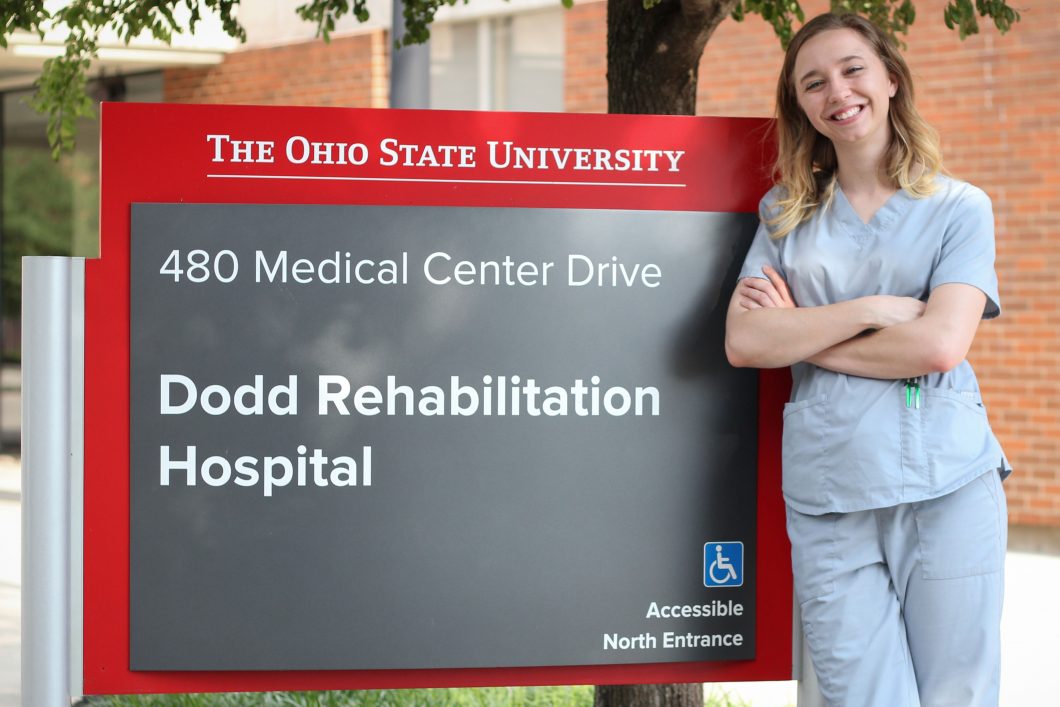My journey through grad school has been a lot of trial and a whole lot of error. It started when applying to programs during my senior year of undergrad. I was completely unsure of what I wanted to do. I liked the CSD discipline, loved research, and wanted more than anything to teach. So, I applied to master’s programs and one PhD program but was also seriously considering looking into some teaching opportunities outside of the discipline.
I was lucky enough to find an advanced degree program with a professor who was doing research that I found really interesting—and this program would allow me to obtain my master’s degree while simultaneously enrolled in the PhD program (although it’s not a dual program formally recognized by the graduate college).
The past 2.5 years of my life have been a period of immense growth, personally and professionally. I’ve missed deadlines, forgotten personal obligations, and overextended myself by taking advantage of too many opportunities. But through those mistakes, I’ve learned how to prioritize my mental health, gotten (a little) better at saying “no,” and experienced inspiring clinical and research successes that have made this journey—though undeniably messy—incredibly worth it. It’s absolutely the best choice I’ve ever made.
The Benefits of Working on Two Degrees
My ability to work on both degrees has been hugely beneficial in two very important ways:
- It’s allowed me the time to immerse myself in every opportunity I’ve encountered in both programs and given me the grace to allow these experiences to change me and my perspective.
- It’s given me the opportunity to directly take what I’m learning in a clinical class and apply it to my growing clinical and research knowledge base.
Playing a Balancing Act
Since starting both programs, I’ve changed PhD advisors, changed the focus of my research, and learned how to navigate two primary identities. I’ve learned there’s no graceful way to “balance” both programs—each one deserves my undivided attention, but there’s not a lot of time for that.
What there is a lot of? Endless lists, seemingly endless mistakes, and the need to establish boundaries. To combat allowing this discipline—which I love and cannot say enough positive things about—to take over my entire life, I’ve started using strategies to ensure that I’m equally pursuing both programs but also taking care of myself. This is a true marathon, not a sprint.
I’ve adopted a tradition that I complete at the beginning of every semester—set goals I want to accomplish by the end of the semester and goals I want to start thinking about for future semesters. This past spring, I set a minimum of three goals in each of the following areas:
- organization/productivity,
- research,
- clinic/master’s courses,
- personal, and
- “things to do before I leave the university.”
I shared these goals with my PhD advisor and a close friend for an increased sense of accountability. That semester, I achieved every goal but one—taking the Praxis (which I will get to this fall).
By being accountable to others, clarifying my objectives (with action items to help me get there), and using visual reminders of the various important identities I’m attempting to balance, I managed to set myself up for a successful semester. I walked away with a firm belief in both of my identities: I considered myself both a successful PhD student and graduate clinician.
Making Time for Everything – Including Me
To date, I haven’t found a hard and fast rule outlining how to best find boundaries when pursuing both programs. I attempt to keep my home devoid of work. I write, prep for clinic, and do research at coffee shops, on campus, or at local libraries. I meet regularly with my clinical and PhD advisors, and I share with them honestly when I’m encountering a clash of competing priorities. During a certain week, I may need to prioritize one over the other—either research or clinic. I track my time and the amount I’m allocating to each project so I can be realistic when setting goals and expectations throughout the day. And, most important, I try to spend at least 30 minutes every day not thinking about school at all. I call my sister. I read a book. I go for a run. All are things I love to do—and I deserve to make time for them.
I truly see myself as a graduate clinician researcher—a clunky name that embodies my ardent belief that there is a need and a place for clinical research, especially in the profession of speech-language pathology. Have I found a way to balance pursuing both degrees? No—but, honestly, I think that very imbalance is what has made this journey so rewarding, so challenging, and so inspiring.

